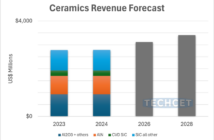Harvard Business Review publiceerde eind vorig week een onderzoek dat zou moeten aantonen dat Europa- en dan met name Nederland – steeds verder achterop raken in de digitale evolutie. Ons land wordt ingedeeld in de ‘stall out’ categorie waar landen als Singapore en de VS in het ‘stand out’ segment worden ingedeeld. Dat terwijl nog geen maand geleden Nederland van de achtste naar de vijfde positie steeg op The Global Competitiveness Report 2015 – 2016 van het World Economic Forum (WEF), onder andere juist vanwege onze uitstekende ict-infrastructuur. Prof. Henk Volberda, directeur van het onderzoeksinstituut INSCOPE: Research for Innovation van de Erasmus Universiteit Rotterdam dat voor de WEF de gegevens verzamelde voor Nederland ‘heeft grote problemen’ met het Harvard-rapport en de onderliggende analyses.
Uit de Digital Evolution Index van Harvard moet blijken dat Europa in een grote digitale recessie verkeerd. De onderzoekers schrijven: ‘Fifteen European countries have been losing momentum since 2008 in terms of their state of digital evolution – this is what we mean by a digital recession – with the Netherlands coming in dead last in our momentum rankings. European countries occupy the nine bottom spots in our list of 50. Plus, the digitally receding countries include large economies like Germany, the UK, and France, as well as Finland and Sweden, Scandinavian tech powerhouses that were the early leaders of mobile telephony. Across the rest of Europe, the state of digital evolution has been mediocre and the pace of improvement, tepid. This dismal performance points to a glaring – and growing — digital gap as Europeans watch the U.S. and China take the lead in tech innovation.’
In reactie zet Henk Volberda de vier hoofdfactoren waarop voor deze ranking gemeten zou zij naast die van de WEF:
• Aanbodzijde factoren (toegang, uitvoering en transactie infrastructuur): Nederland scoort hier in de Global Information Technology Index van het WEF heel hoog op.





